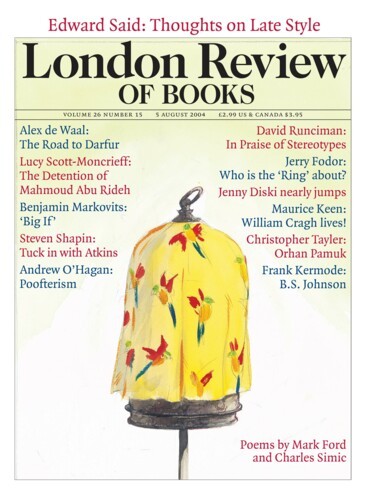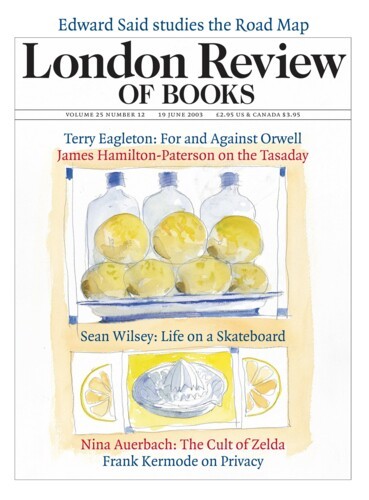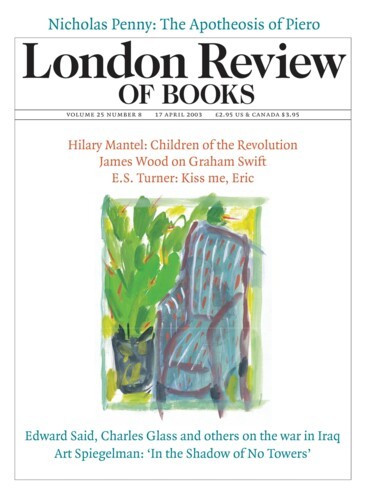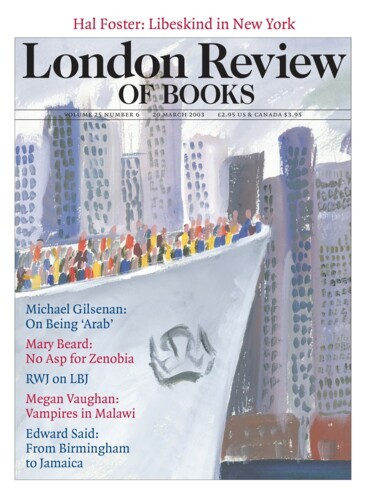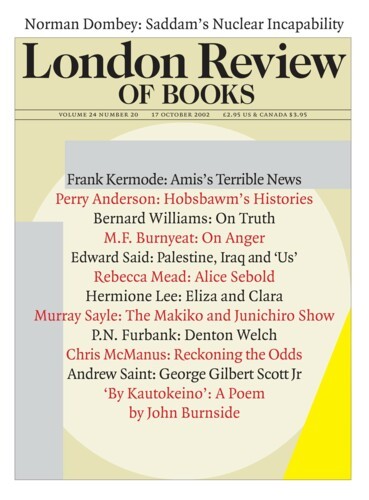Thoughts on Late Style
Edward Said, 5 August 2004
Both in art and in our general ideas about the passage of human life there is assumed to be a general abiding timeliness. We assume that the essential health of a human life has a great deal to do with its correspondence to its time – the fitting together of the two – and is therefore defined by its appropriateness or timeliness. Comedy, for instance, seeks its material in...
